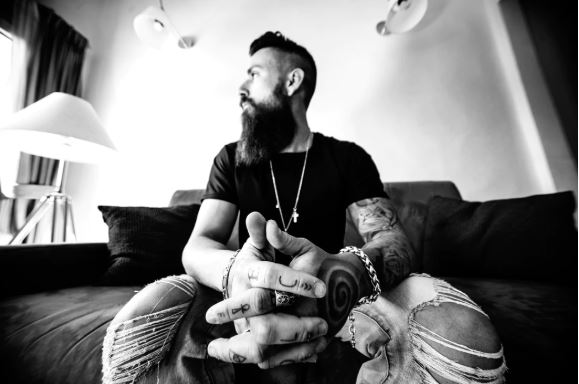If you Didn’t Cry, did you even go to Therapy? Scenes from the Sofa: Client Edition.
There was plenty of blame to go around—after all, my life had not turned out how I imagined it would.
There were ups and downs, like everyone else, but I’d lost myself along the way. I felt oddly disconnected—isolated among a sea of people, my loving arms unable to reach beyond my own insecurities.
I hadn’t felt like myself, as if I had any idea what that meant. I only knew that something was wrong. I was the embodiment of being stuck—chained to a past I was too afraid to face, yet unable to move forward in a healthy way.
Until I found the courage to seek help and begin to turn my life around.
I still struggle at times, but now I have possibilities for happiness that I never envisioned. For the first time in my life, I am my own best friend.
Therapy turned out to be a rather different experience than I thought—I just didn’t have realistic expectations about how it worked.
Here are 10 things to know before you start therapy:
It’s not like going to the doctor.
Sure, many of us go to the doctor for regular checkups. But most of us go when we’re sick or something’s wrong—we want a diagnosis and a way to fix it. We’re not expected to know much more than that.
When we go to therapy, we’re struggling with one or more elements of our emotional health. While a therapist might make a diagnosis, they have no cure to give. That part is up to us.
It won’t be quick.
Therapy is not about quick fixes—it’s not supposed to be. If we want to work on better communication, it might be a shorter course. If we want to do deep inner work, grab some popcorn and buckle in—it’s going to be a while.
Our therapist is not responsible for fixing us.
Some of us are surprised to learn that it’s not the job of our therapist to fix us.
Their role is to facilitate our healing and teach us coping skills to manage our lives better. They’ll create a safe space for us to share, build a trusting relationship, and hopefully witness our healing and recovery. But they won’t do it for us.
As experts in their field, they’ll also call us on our bullsh*t, and steer us back to our path if we get too far off course.
A good rapport with our therapist is essential.
The letters on the wall are important, but this is essential. Deep inner work requires a great deal of vulnerability and safety. We need a good rapport with the person sitting across from us. This may take a bit of time, but not too much for us to tell if it’s a good match.
If we feel judged, or we’re not getting the space to articulate our feelings, it’s not going to work. We all need a certain vibe to make therapy work, and it’ll be different for everyone. But we can make sure we have it, or try someone else.
It’s normal to feel awkward and uncomfortable.
It’s hard not to feel that way when we start to share things we’d rather leave buried. More than once I’ve sat frozen, choking on the words I’m unable to get out. When something like that happens, we know we’ve reached an area that needs work.
Don’t be afraid of those difficult, uncomfortable moments—it means we’re on the right track!
Therapy is f*cking hard.
While easy issues are a good place to start, at some point we’re going to have to get to the hard stuff to make real progress.
A good rule of thumb: the issues we least want to talk about are the ones that need the most attention. It takes a great deal of courage to say out loud all of the thoughts we’ve struggled to keep silent and secret our whole lives.
The progress we make is proportional to the work we put in.
This is true with many things in life, and also true with therapy. If we stay on the surface and don’t challenge ourselves, our progress and healing will be limited.
As we peel back all the layers of pain and suffering, we travel deeper toward our core issues. It’s scary, and hard, and we’ll cry a lot. But the deeper we go, the more opportunities we’ll find to heal and grow.
The good news is that we have our therapist to guide us, supporting us every step of the way.
It might take a few tries, and that’s okay.
At certain times in our lives, we’re ready to face only a certain amount of our issues. We go as deep as we can, but sometimes we can handle only so much truth.
My first attempt at therapy was about acknowledging the fact that I had issues. The second time was more helpful, but I still gave my therapist a giant “hell no” for suggesting I might be codependent.
On my third try, I turned my life around.
We are not defective.
We might be broken, but we are not defective. We are worthy of the same love and belonging as everyone else.
Truth is, we are f*cking warriors, willing to confront our deepest and darkest fears, exposing our most painful wounds for a chance at a healthier and more joyful life.
Doesn’t get more badass than that!
Therapy is an investment in ourselves.
Therapy can be costly, and sadly not everyone can afford it. But if there’s a way to work out the cost, it can be well worth it. It’s an investment in our emotional health and we deserve that. The money we spend goes toward building lives that we may have not thought possible.
If you struggle with life from time to time, you’re not alone. Some of us need help getting back on track, and there’s no shame in that.
But it’s time to level up on our emotional health—to look in the mirror and face our fears. It’s hard as hell, but if we put the work in, we just might end up with a life that’s better than we ever imagined.
“I am more than my scars.” ~ Andrew Davidson
~


 Share on bsky
Share on bsky





Read 20 comments and reply